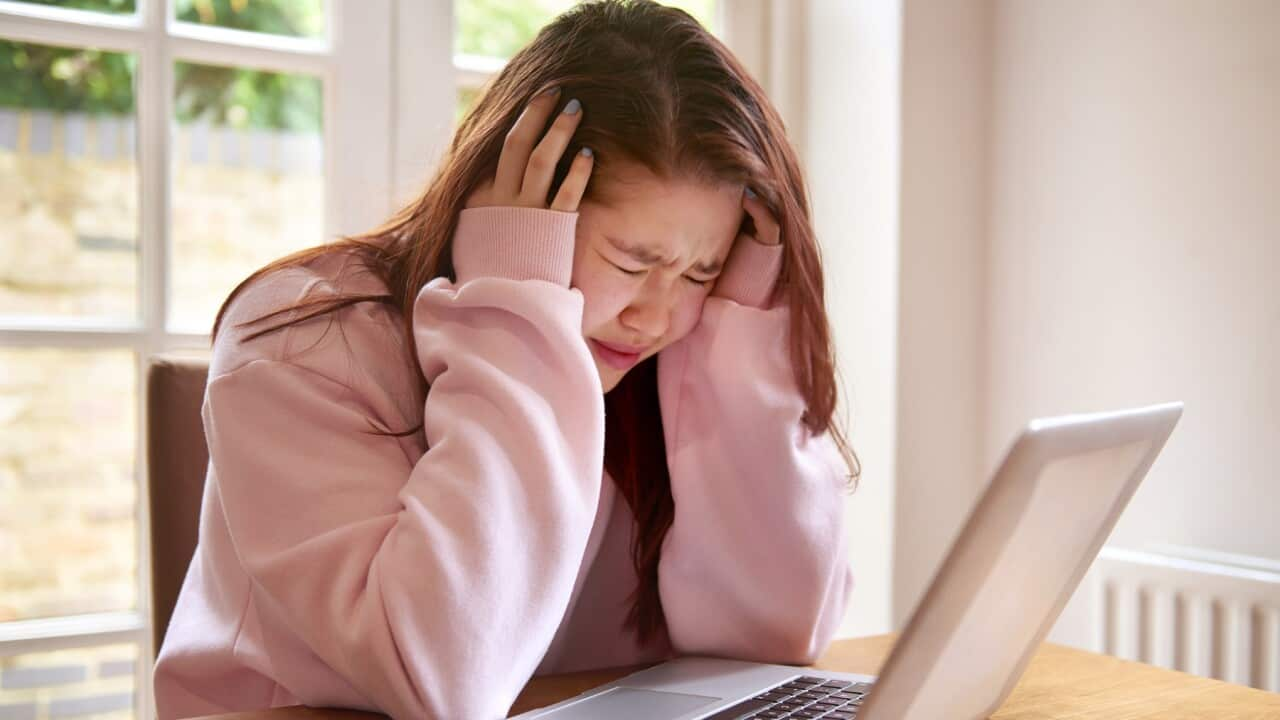Lily Owen, 29, admits she is lucky to still be alive.
Four years ago, a toxic drug addiction almost turned into a fatal overdose.
“I was using methamphetamines daily,” she told SBS News.
“I was also mixing that with benzos (Benzodiazepines), so Valium and GHBs (Gamma-hydroxybutyrate).
"It got to a point that I was using anything and everything to feel anything, just to sort of feel something."
Ms Owen was warned from a young age about the dangers of narcotics.
But struggling with her mental health as a young adult, she began to "dabble" in party drugs as a means of escape.
"It sort of went from you know, a more acceptable pile of drugs to these hotter drugs," she said.
"In the end, heroin and meth got the large majority of us, and there were about five or six of us that ended up in rehab."
Ms Owen moved to Sydney to break her addiction and was prescribed valium to quell her anxiety.
But the treatment only added to her woes when her meth addiction returned.
"My life really started falling apart, I couldn't keep it together anymore," she said.
"[I was] using lots of different drugs at once just to sort of feel normal again and that was just purely to treat an underlying anxiety and an underlying emptiness."
Ms Owen is now in recovery and is working in the harm reduction field, hoping to change the stigma surrounding drug overdoses.
She said it's been hard work every day to get where she is now, but the effort has been worth it.
“There is happiness on the other side, You can be happy again, you can get off the drugs.”
“It just takes a lot of work, but it's so worth it on the other side.”
Prescription drugs drive overdose rates
Ms Owen's story is one increasingly common in Australia.
Australia’s Annual Overdose Report 2020, compiled by the Penington Institute, found more than 2,000 Australians had died due to drug overdoses for a fifth straight year.
There has been a sharp increase in deaths from stimulants like methamphetamine but it's prescription drugs that continue to account for the greatest loss of life. The report’s authors warn the trend shows few signs of slowing and fear a spike in deaths could be ahead due to the coronavirus pandemic.
The report’s authors warn the trend shows few signs of slowing and fear a spike in deaths could be ahead due to the coronavirus pandemic.

Source: Penington Institute
“The likelihood is that people will shift to more dangerous drug consumption patterns [and] obviously there is a real risk [of that] with social isolation and economic deprivation,” John Ryan, CEO of the Penington Institute, said.
“One of the risks for overdose is having a period of not taking the drugs and then resuming at the same level as you were before.”
“That applies to pharmaceuticals as much as it does to heroin or methamphetamine.” Opioids account for most drug overdose deaths, but prescription drugs, often paired with alcohol, also produce a lethal cocktail.
Opioids account for most drug overdose deaths, but prescription drugs, often paired with alcohol, also produce a lethal cocktail.

John Ryan, CEO of the Penington Institute Source: Supplied
Pain cure opioids, minor tranquilisers, sleeping tablets and anxiety medication were all major contributors to the death toll.
There were 2,070 drug-induced deaths in Australia in 2018, of which 75 per cent were accidental.
Over 40 per cent of unintentional overdose deaths were suffered by Australians aged 50 and over, with men three times more likely than women to suffer an overdose death.
Regional epidemic
In Regional Australia, overdose deaths have increased by 15.9 per cent over the past eight years, while rates in capital cities grew by 3.6 per cent.
First Nations Australians are almost three times more likely to die from an unintentional overdose, then the rest of the population.
“Unless there are more services in rural and regional Australia that address drug and alcohol issues, we are going to see this increase continue,” Scott Wilson, Aboriginal Drug and Alcohol Council, told SBS News.
To try and stem opioid-related overdoses, the Tasmanian government commenced a trial of the free take-home drug Naloxone in July.
Naloxone is a drug agent that temporarily reverses the impacts of an opioid overdose.
It is listed on the pharmaceutical benefits scheme and is available over the counter in an easy to use nasal spray.
If you or someone you know needs help, call 1800 250 015 National Alcohol and Other Drug Hotline.




